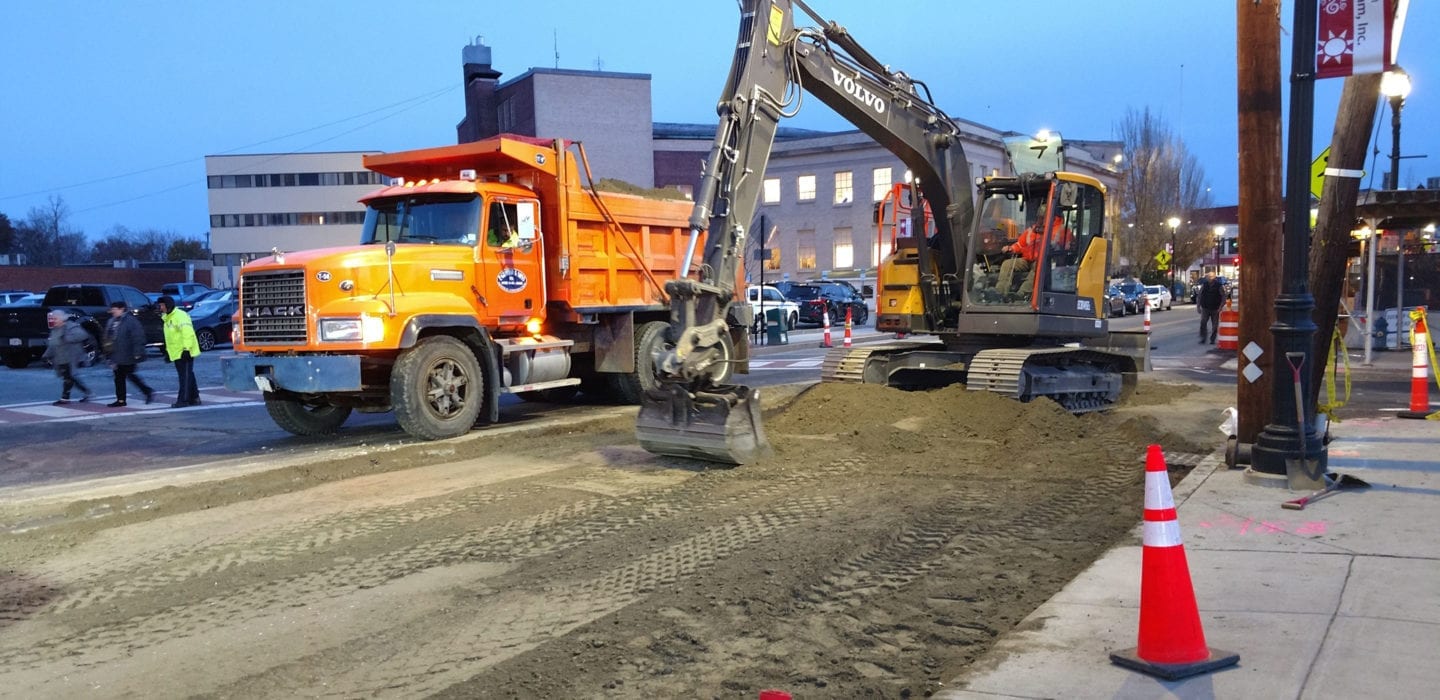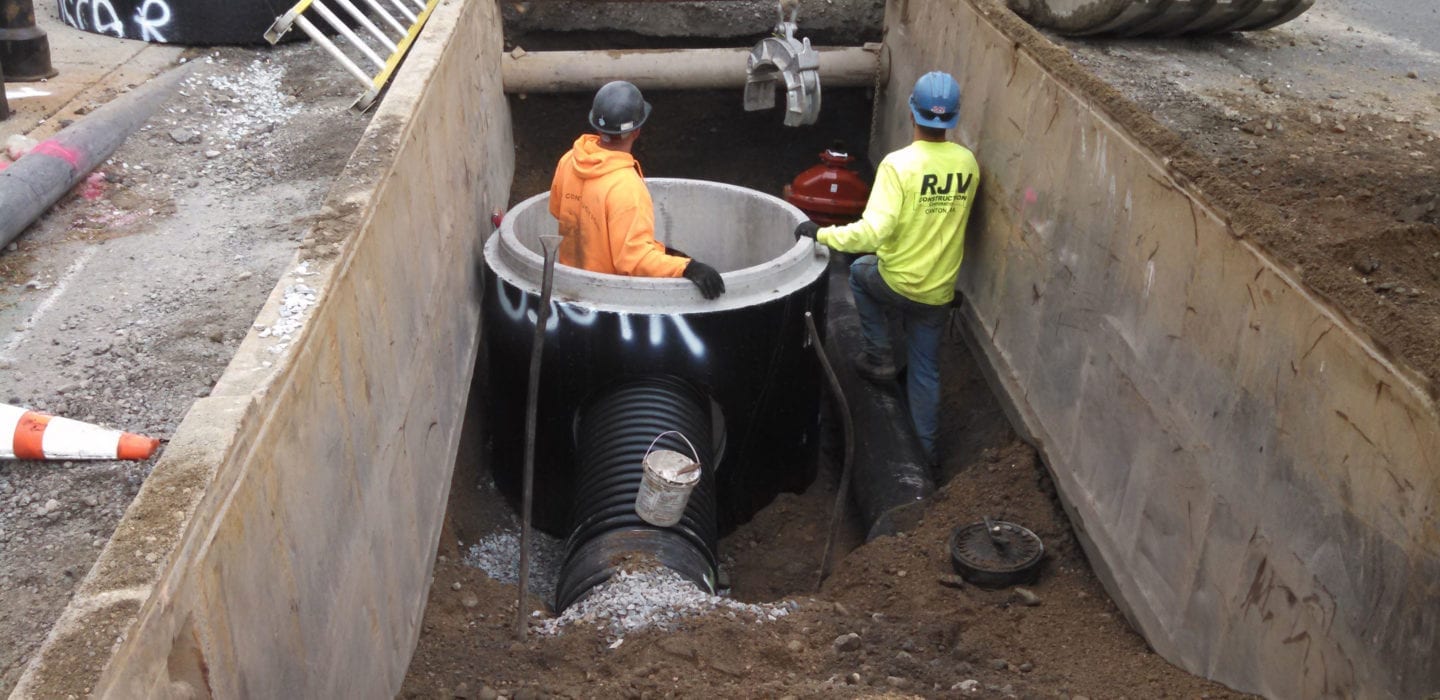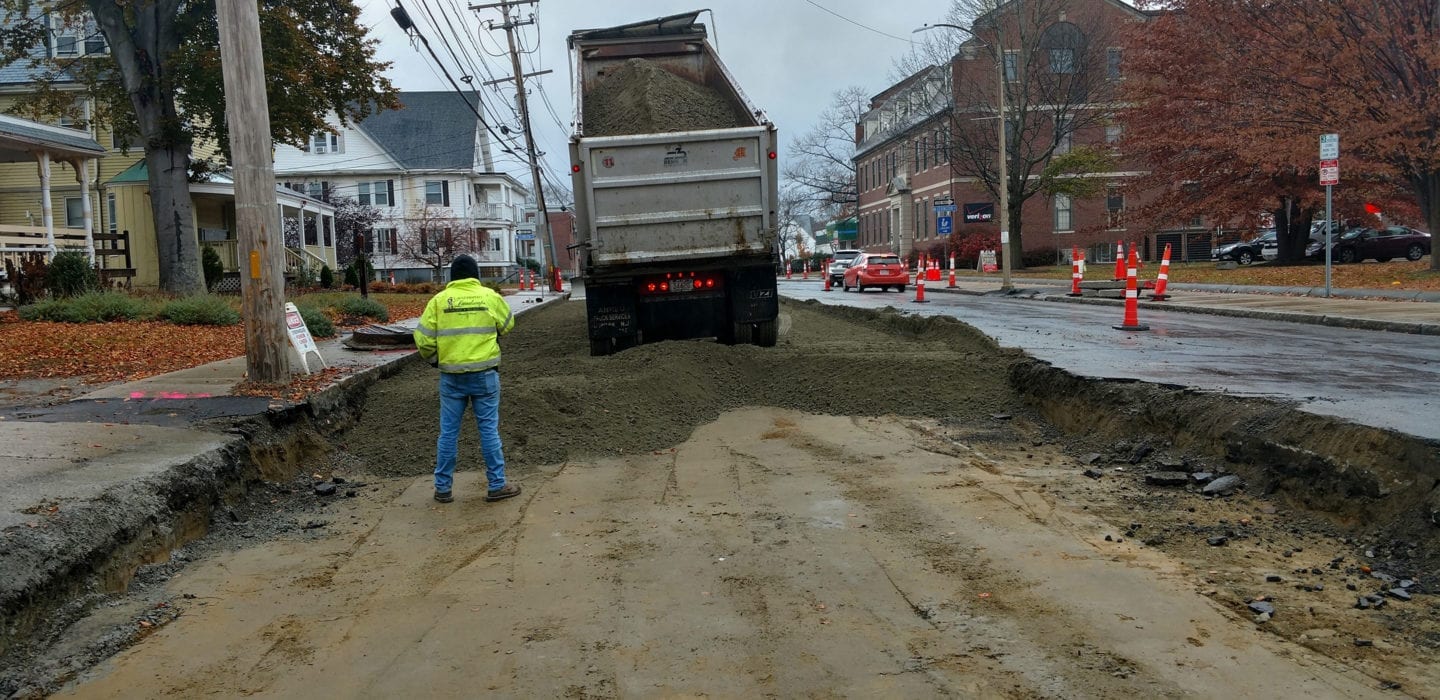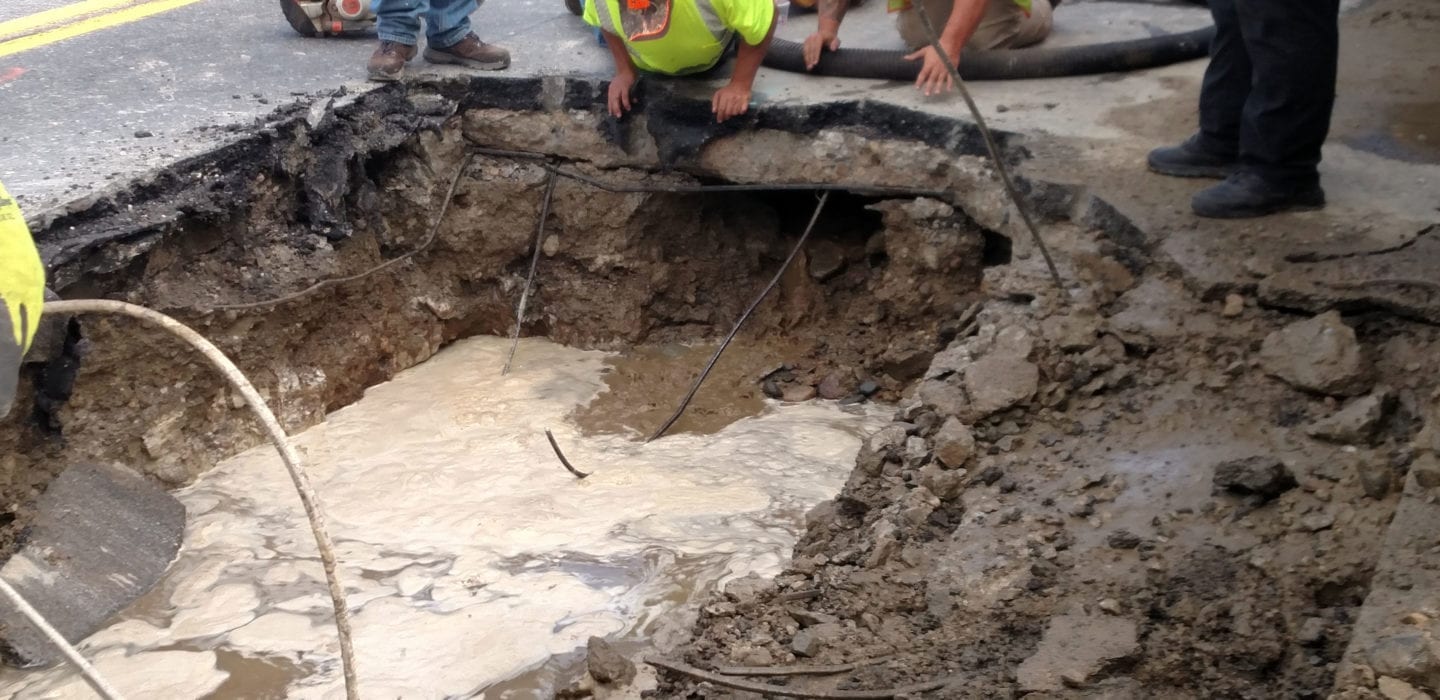Union Avenue Utility Improvements
Framingham, Massachusetts
The Union Avenue improvements have taken place over a series of three separate contracts and cover a broad range of work including planning, design, and construction services. The three contracts took a little over four years to construct costing the City just shy of $16M. In that time, over two miles of water main was replaced, about two miles of sewer main was either replaced or rehabilitated, over a mile of storm drain pipe was replaced, and three off-line water quality treatment units were installed.
The majority of the project area is located in a roadway that contains 8”-12” reinforced concrete road base, a remnant from the late 19th century when trolleys utilized the corridor. The entire concrete road base was removed as part of the utility improvements. Additionally, asbestos cement (AC) sewer services were encountered during construction. All AC pipe encountered were properly handled, documented, removed, and disposed in accordance with MassDEP’s “Asbestos Cement Pipe Guidance Document” and applicable state regulations.
An extensive traffic management program was designed to minimize impacts to drivers, due to the fact that Union Avenue is one of the most heavily travelled roadways in City, connecting Downtown Framingham to Route 9 and the MassPike. Significant coordination was required at and around the nearby hospital in order to establish and communicate changes to an “Emergency Vehicle” route to get ambulances, fire trucks, and other emergency vehicles to the emergency room. Additionally, special coordination efforts with the facility were made to ensure that utility service disruptions and construction impacts were minimized.
This project required significant public outreach and an education program to minimize impacts and address the diverse range of concerns of the various stakeholders. In 2020, during the final few months of the project, the public outreach program was modified mid-stream to accommodate new conditions and restrictions resulting from COVID-19. The BETA team seamlessly transitioned to virtual meetings and electronic outreach so that regular communication was maintained, and all stakeholders remained informed.





